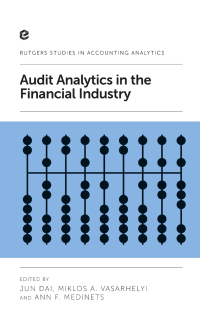Question
Cost Accounting Just as managerial accounting helps businesses make decisions about management, cost accounting helps businesses make decisions about costing. Essentially, cost accounting considers all
Cost Accounting
Just as managerial accounting helps businesses make decisions about management, cost accounting helps businesses make decisions about costing. Essentially, cost accounting considers all of the costs related to producing a product. Analysts, managers, business owners and accountants use this information to determine what their products should cost. In cost accounting, money is cast as an economic factor in production, whereas in financial accounting, money is considered to be a measure of a company's economic performance.
Requirements for Accounting
In most cases, accountants use generally accepted accounting principles (GAAP) when preparing financial statements in the U.S. GAAP is a set of standards and principles designed to improve the comparability and consistency of financial reporting across industries. Its standards are based on double-entry accounting, a method in which every accounting transaction is entered as both a debit and credit in two separate general ledger accounts that will roll up into the balance sheet and income statement.
Example of Accounting
To illustrate double-entry accounting, imagine a business sends an invoice to one of its clients. An accountant using the double-entry method records a debit to accounts receivables, which flows through to the balance sheet, and a credit to sales revenue, which flows through to the income statement.
When the client pays the invoice, the accountant credits accounts receivables and debits cash. Double-entry accounting is also called balancing the books, as all of the accounting entries are balanced against each other. If the entries aren't balanced, the accountant knows there must be a mistake somewhere in the general ledger.
History of Accounting
The history of accounting has been around almost as long as money itself. Accounting history dates back to ancient civilizations in Mesopotamia, Egypt and Babylon. For example, during the Roman Empire the government had detailed records of their finances.7 However, modern accounting as a profession has only been around since the early 19th century.
Luca Pacioli is considered "The Father of Accounting and Bookkeeping" due to his contributions to the development of accounting as a profession. An Italian mathematician and friend of Leonardo da Vinci, Pacioli published a book on the double-entry system of bookkeeping in 1494.8
By 1880, the modern profession of accounting was fully formed and recognized by the Institute of Chartered Accountants in England and Wales.9 This institute created many of the systems by which accountants practice today. The formation of the institute occurred in large part due to the Industrial Revolution. Merchants not only needed to track their records but sought to avoid bankruptcy as well.
Compete Risk Free with $100,000 in Virtual Cash
Put your trading skills to the test with our FREE Stock Simulator. Compete with thousands of Investopedia traders and trade your way to the top! Submit trades in a virtual environment before you start risking your own money. Practice trading strategies so that when you're ready to enter the real market, you've had the practice you need. Try our Stock Simulator today >>
Step by Step Solution
There are 3 Steps involved in it
Step: 1

Get Instant Access to Expert-Tailored Solutions
See step-by-step solutions with expert insights and AI powered tools for academic success
Step: 2

Step: 3

Ace Your Homework with AI
Get the answers you need in no time with our AI-driven, step-by-step assistance
Get Started


